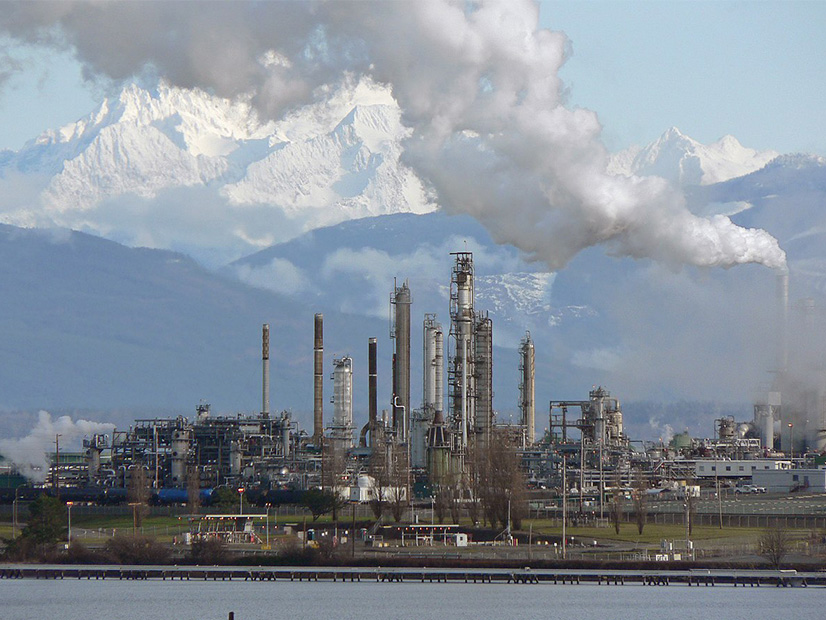The Washington Senate voted 27-20 on Thursday to approve a bill that would require an increased use of biofuels to cut carbon emissions from motor vehicles.
The bill would mandate that carbon emissions from gasoline and diesel fuel sold in Washington be cut by 10% below 2017 levels by 2028 and by 20% by 2035. It excludes emissions from fuel that is exported out of state or used by water vessels, railroad locomotives and aircraft. The goals apply to overall vehicle emissions in the state and not to individual types of fuels. Northwestern Washington has five oil refineries. It would go into effect Jan. 1, 2023.
Under this program, biofuels would likely be blended with petroleum-based fuels.
HB 1091 now goes back to the House of Representatives for the two chambers to hash out the tweaks added in the Senate. The House approved the bill Feb. 27. (See Amazon Backs Washington’s Low-carbon Fuel Bill.)
A 2008 law sets carbon-reduction targets of 45% below 1990 levels by 2030, 70% by 2040 and 95% by 2050.
A 2021 Washington Department of Ecology report puts the state’s carbon dioxide emissions at 99.57 million metric tons in 2018. The report shows that from 2016 to 2018, the transportation sector was the largest contributor at nearly 45% of emissions.
On Thursday, GOP senators heavily criticized the bill. Democrats, assured of a majority in Thursday’s vote, spoke little.
Republicans argued that the bill will increase gasoline prices because biofuels are more expensive than petroleum-based fuels. They contended that lowering carbon emissions in Washington is too insignificant a measure to help combat worldwide global warming. And increased gasoline prices will harm farmers, they said.
A few argued that lower-carbon fuels won’t actually decrease greenhouse gases, although they did not explain how they reached that conclusion. “If you think clean fuel is going to make your emissions cleaner, that’s false,” Sen. Keith Wagoner (R) said.
“People are going to spend a ton of money to get around,” Minority Leader John Braun said. “But they’re not going to get more roads, more bridges.”
“This bill is nothing but punitive,” Sen. Curtis King (R) said. “It doesn’t raise any money. It just raises the cost of gas.”
Democrats stressed that low-carbon fuels produce less pollution and, thus, lessens detrimental health effects. “We’re doing this for the kids with asthma, whose parent can only afford to live next to the freeway,” Sen. June Robinson (D) said.




